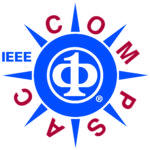MediComp 2023: The 10th IEEE International Workshop on Medical Computing
Technical Program
*= in-person presentation in Torino
A Strategy for Aided Diagnosis of Obstructive Sleep Apnea in Children Based on Graph Neural Network*
Yi Lei, Han Qin, Xiaodan Li, Qing Wang, Lin Zang, Jun Tai and Jijiang Yang
Study on Assessment Methods of Developmental Coordination Disorder in Children*
Wenbo Cui, Wenai Song, Zitong Pei, Yi Lei, Qing Wang, Yanjie Chen and Jijiang Yang
CMTN: A Convolutional Multi-Level Transformer to Identify Suicidal Behaviors Using Clinical Notes
Manohar Murikipudi, Abm. Adnan Azmee, Md Abdullah Al Hafiz Khan and Yong Pei
Evaluation of the Relevance of Adverse Drug Reactions Based on ERNIE-DPCNN*
Hongliang Liu, Zhiyu Chen, Miao Yu, Wenbo Cui, Lin Zang, Wei Ren, Yongfang Hou and Yi Lei
Mental Health Analysis During Pandemic: A Survey of Detection and Treatment
Paramita Basak Upama, Maria Valero, Hossain Shahriar, Mohammad Syam and Sheikh Iqbal Ahamed
Computational cost of CT Radiomics workflow: a case study on COVID-19*
Giulia Varriano, Antonella Santone, Francesco Mercaldo, Valeria Sorgente and Luca Brunese
Quantum Machine Learning in Disease Detection and Prediction: a survey of applications and future possibilities
Paramita Basak Upama, Anushka Kolli, Hansika Kolli, Subarna Alam, Mohammad Syam, Shahriar Hossain and Sheikh Iqbal Ahamed
Health and Medical care industries are one of the largest and fastest-growing parts of a country’s economy. The proper collection, management and utilization of medical information play a critical role in detecting health and medical problems, identifying innovative solutions and allocating resources to treat patients, medical computing technologies are widely employed to improve the quality of healthcare services.
There are several significant computing technology developments and innovations that are making a big splash on the health and medical care information manipulation. Examples of currently emerging technologies include, 1) Health sensing: There’s been a sharp increase in the quantity and variety of consumer devices, especially mobile devices such as smartphones, and medical sensors that capture some aspect of physiological, cognitive and physical human health including vital signs, medical images, videos, activity data; 2) Big data analytics: With the increasing digitization of health and medical care, a large amount of health and medical data has been accumulated and the size is increasing in an unprecedented rate, discovering the in-depth knowledge and values from the big medical data is the key to deliver the best evidence-based, patient-centric, and accountable care; 3) Cloud computing: With medical care providers looking at automating processes at lower cost and higher gains, cloud computing provides an ideal platform to achieve high efficient use of computing resources, simplify management, and improve services in a safe and secure manner;4) Artificial intelligent: AI can help people precisely predict or diagnose disease, and provide suitable intervention methods or treatments.
Theme and Scope of the Workshop
The workshop will bring together researchers and practitioners to share research results, advances and practical experience related to medical computing areas.
The workshop calls for original papers describing the theories, methodologies, and solutions about the innovative application of emerging computing technologies that deal with the collection, storage, retrieval, sharing, and use of medical data and knowledge, as well as the integration of heterogeneous medical services and devices for enhanced medical care services. Topics of interests include, but are not limited to:
- The integration of heterogeneous medical services
- Health sensing technologies and systems and their interoperation
- Health data storage, processing and manipulation
- Data mining/deep knowledge discovery from Health and Medical data
- Big data analysis on health and medical area
- Mobile health(mHealth) service/system and their interoperation
- Intelligent integration of multiple medical service/system
- Privacy and security and on healthcare
- Intelligent healthcare/decision support system
- Medical care resource management in smart medical environments
- Medical related image and video processing
- Cloud computing and process integration for medical care
- Pervasive and ubiquitous computing for medical care delivery
- Semantic/knowledge driven medical information management
- Interoperation of medical services and devices in smart environments
- Disease predication and diagnosis based on AI
- Signal recognition in Pharmacovigilance
- Rational drug system
There is no doubt that the adoption of these innovative technologies in health and medical fields creates tremendous opportunities. Yet lots of challenges still need to be resolved for achieving enhanced health and medical care services.
Paper Templates
IEEE Paper templates are available in MS Word 2003 and LaTex. All submissions must use US 8.5×11 letter page format.
Important Dates
Main Conference/Symposium
Main conference/symposium papers due: 15 January 2023Extended to 15 February 2023
Notification: 7 April 2023
Camera-ready and registration due: 7 May 2023 Updated: 18 May 2023
Journal then Conference Submissions
Due date: April 7, 2023
Notifications: April 30, 2023
Workshops, Fast Abstract, SRS Programs
EXTENDED: Workshop papers due: 21 April 2023
UPDATED: Notifications: 7 May 2023
UPDATED: Camera-ready and registration due: Updated: 18 May 2023
Submission Link
Please submit your paper on EasyChair
IEEE Conference Publishing Policies
All submissions must adhere to IEEE Conference Publishing Policies.
IEEE Cross Check
All submission will be screened for plagiarized material through the IEEE Cross Check portal.
Workshop Organizers
Ji-Jiang Yang, Tsinghua University, China
Email: yangjijiang@tsinghua.edu.cn
Jianqiang Li, Beijing University of Technology, China
Email: lijianqiang@tsinghua.org.cn
Sheikh Iqbal Ahamed, Marquette University, USA
Email: sheikh.ahamed@marquette.edu
Faheem Akhtar Rajput, Sukkur IBA University, Pakistan
Email: fahim.akhtar@iba-suk.edu.pk
Program Committee
Bruce McMillin, Missouri University of Science & Technology, USA
Zahid Hussain Khand, Sukkur IBA University, Pakistan
Hua Zhong, Institute of Software, CAS, China
May D. Wang, Geogia Institute of Technology, USA
Di Xiao, University of Queensland,Australia
Hossain Shahriar, Kennesaw State University, USA
Minhua Lu, ShenZhen University, China
William Chu, Donghai University, Taiwan
Reiko Hishiyama, Waseda University, Japan
Pinar Yildirim, Okan University,Turkey
Zhen Fang, Institute of Electronics, CAS, China
Asif Rajput, Sukkur IBA University, Pakistan
Asif Raza Shah, Sukkur IBA University, Pakistan
Noman Islam, University of Kuala Lumpur, Malaysia
Nouman Durrani, National University – FAST, Pakistan

